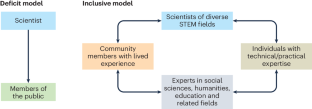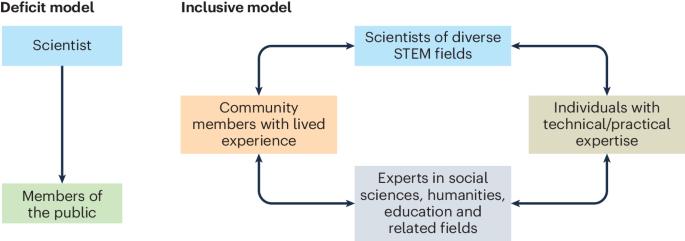所有 STEM 学生都应学习包容性科学交流
IF 21.4
1区 心理学
Q1 MULTIDISCIPLINARY SCIENCES
引用次数: 0
摘要
科学传播往往假定接受者在知识方面存在 "缺陷",但这种基于缺陷的方法是不公平和无效的。我们必须对所有 STEM(科学、技术、工程和数学)专业的学生进行包容性科学传播方面的培训,通过与不同人群的合作来消除错误信息,解决社会科学问题。本文章由计算机程序翻译,如有差异,请以英文原文为准。


All STEM students should learn inclusive science communication
Science communication often assumes a ‘deficit’ in knowledge on behalf of the recipient, but this deficit-based approach is inequitable and ineffective. We must train all STEM (science, technology, engineering and mathematics) students in inclusive science communication, which uses collaboration with diverse people to address misinformation and solve socioscientific issues.
求助全文
通过发布文献求助,成功后即可免费获取论文全文。
去求助
来源期刊

Nature Human Behaviour
Psychology-Social Psychology
CiteScore
36.80
自引率
1.00%
发文量
227
期刊介绍:
Nature Human Behaviour is a journal that focuses on publishing research of outstanding significance into any aspect of human behavior.The research can cover various areas such as psychological, biological, and social bases of human behavior.It also includes the study of origins, development, and disorders related to human behavior.The primary aim of the journal is to increase the visibility of research in the field and enhance its societal reach and impact.
 求助内容:
求助内容: 应助结果提醒方式:
应助结果提醒方式:


